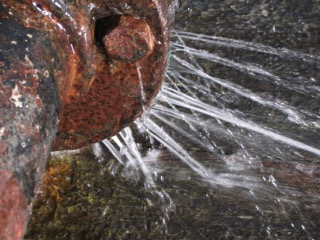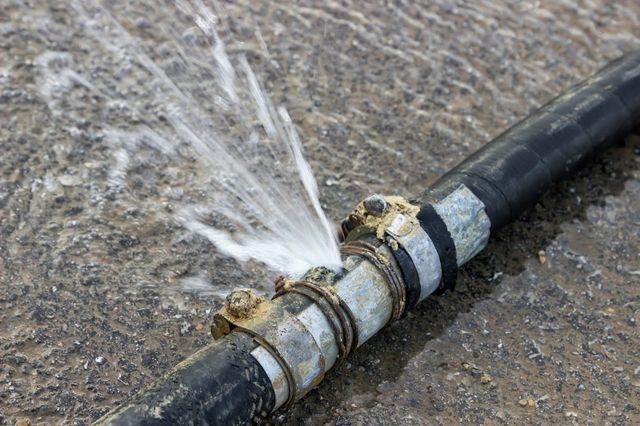They are making a few good observations regarding Water Damage: Tips On What To Do When Your House Is Flooded in general in this great article just below.

What should you do if a water pipe bursts in your residence? The longer you wait, the extra serious the damage that can take place to your residential property. For these reasons, you need to find out just how to act in the occasion of a burst water pipe.
Shut down the Key Waterline Shutoff
The first thing to do? Close the shut-off valve. Look for the neighborhood shut-off shutoff to switch off the water in one certain area just. If you do not understand where the localized shut-off shutoff is, opt for the main water line shutoff as well as turn it off. This step will certainly remove the water right away in your entire home. Typically, the main shutoff is discovered outside the residence beside the water meter. If it's not there, you can also locate it in two locations: in the cellar at eye level or the first floor on the ground. Typically, building contractors put the shut-off shutoff in the main ground level washroom or best alongside it.
Call Water Damage Repair Pros for Assistance
After shutting the water resource, call the professionals for aid. This circumstance is not something you can do some do it yourself since the pipelines needed to be taken care of and also there is a requirement to address the other problems to your residential property. Look for help from a trusted firm supplying 24/7 emergency services if you can not cope. With their professional aid, you can prevent much larger water damage including deformed baseboards, loosened ceramic tiles, or harmed structures. Don't take this trouble gently and seek expert advice for your complete assurance as well as a credible service.
Paper the Damages For Insurance policy
While you're awaiting the pros to get here, obtain some documents of the damages brought on by the wayward pipe. Take photos as well as videos of whatever. Do close-up shots of the damaged spots and valuables. Your documentation will certainly act as proof for your house owner's insurance coverage. Keeping positive with this situation helps you to file a claim for insurance coverage, which will certainly additionally support you and also your family members to return on your feet.
Salvage Points That Can Be Saved
Analyze the damaged things as well as take out the most essential ones from the stack as soon as you're done taking photos. Dry them off in a dry/warm place far from the broken area and also try to preserve them as high as you can. Drag as much wetness as you can to the material so it can start to dry.
Start the Drying Refine
The good news is, the water from your waterlines is already tidy so you don't have to fret concerning drain water. The moving water may have interrupted the dust as well as particles in your floorboards and rugs. Blot out as much water as you can from the surface areas with old towels.
Professionals are the only people qualified to examine appropriately and deal with the burs pipes and also subsequent damage. They normally give silent red flags like gurgling paint, water discolorations.
What should you do if a water pipe bursts in your residence? For these reasons, you need to find out just how to act in the event of a burst water pipeline. After closing the water source, call the experts for assistance. With their specialist help, you can avoid a lot bigger water damages consisting of deformed walls, loose tiles, or harmed frameworks. The good news is, the water from your waterlines is currently clean so you don't have to fret regarding sewage system water.
How to Handle a Burst Pipe and Minimize Damage
Steps to Take Ahead of Time
If you own property in an area that experiences cold weather, you need to be aware of seasonal maintenance tasks that will help you protect your property as the weather changes each year. One of the most important steps is to winterize your pipes to ensure they won't freeze or burst when the temperature drops. This includes action items like insulating any exposed pipes, detaching garden hoses and covering outdoor faucets. If the weather gets cold enough, you may even consider leaving a faucet dripping or opening cabinet doors during the coldest parts of the day.
No matter how prepared you might be, accidents and emergencies still happen. You'd be wise to set up a savings account specifically for your property so you have a "rainy day" fund set aside for unexpected expenses. All homes—regardless of age, location or condition—will inevitably need some form of emergency repair.
Steps to Take for Frozen Pipes
A frozen pipe will not necessarily burst, so if you can catch a frozen pipe early on, you could save yourself a major headache. When your area experiences frigid temperatures, be sure to check your plumbing and keep an eye out for warning signs like faucets only releasing small amounts of water or toilets not refilling when flushed. If you do run into one of these issues, you're likely dealing with a frozen pipe.
If this happens, your first step should be to cut off the water supply to that section of the plumbing. Expanding and freezing water can quickly cause damage. Even if the water supply is shut off, you will likely still deal with some leaking from the water that defrosts after the pipe has thawed. Be prepared with a mop, bucket and/or towels to quickly soak up any excess water.
In order to thaw a frozen pipe, you can use a space heater, infrared or incandescent heat lamp, or even a hairdryer to warm up the frozen area. Heat tape is also an option and should be used according to manufacturer instructions. Do not use any sort of open flame to thaw frozen pipes, as it poses a major fire hazard and can damage your pipes further.
Steps to Take for a Burst Pipe
Water damage claims are the second most common insurance claim in the U.S. When you're dealing with a frozen pipe, the water continues to expand as it freezes, which creates pressure that can cause a pipe to burst. When this happens, the crack or leak in the pipe allows water flow from the pipe to enter your home where it shouldn't. If a pipe does burst, you need to act quickly to mitigate property damage and repair cost.
Your very first step should be to shut off your main water supply to minimize flooding—typically the most expensive damage to address. Once you've shut off the water supply, make sure you identify the entire area that has been impacted by the leak. Remove as much water as possible—as quickly as possible—using a mop, sponges, towels or a shop vacuum or wet/dry vacuum. To prevent long-term damage due to moisture build-up, run a dehumidifier or fan in the affected area. Contact a licensed plumber to ensure the pipe is correctly repaired before running any water to that section of the home again. Burst pipes and the associated water damage are something you absolutely want to avoid as a property owner. If you've had to learn your lesson the hard way, don't let yourself get caught in a similar situation during the next spell of cold weather. The best way to deal with frozen or burst pipes is to prevent them in the first place—proactive winter maintenance will save you time, money and a whole lot of stress.

I came across that content on Quick Tips To Help Deal With Water Damage while doing a lookup on the internet. So long as you appreciated our blog entry kindly be sure to pass it around. Thanks a bunch for your time. Don't hesitate to come by our site back soon.